International Council for Central and East European Studies
The International Council for Central and East European Studies (ICCEES) is a global consortium of national scholarly associations dedicated to multi-disciplinary scholarly studies of Central and Eastern Europe, including former Soviet countries of Central Asia.
Its aims are to:
- promote international scholarly exchange and cooperation in Central and East European Studies by holding a World Congress every five years;
- share experience and support in critical methods, scholarly publishing, and organizational skills; and
- welcome young scholars working in the field.
The founding conference in Banff, Canada (1974) was attended by participants from 29 countries, and ICCEES continues to expand its international partnerships and connections.
Structure of ICCEES
Current Executive
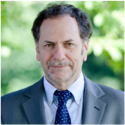 Professor Georges Mink
Professor Georges Mink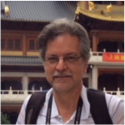
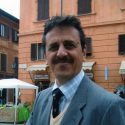
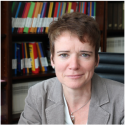 Dr. Gabriele Freitag
Dr. Gabriele Freitag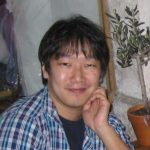 Dr. Motoki Nomachi
Dr. Motoki Nomachi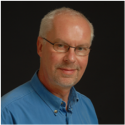 Professor Peter Waldron
Professor Peter Waldron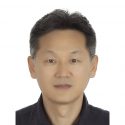 Professor Seongjin Kim
Professor Seongjin Kim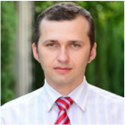 Dr. Alexander Akimov
Dr. Alexander Akimov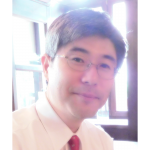 Dr. Yoshiro Ikeda
Dr. Yoshiro Ikeda Professor Jeremy Smith
Professor Jeremy SmithHistory
The last year of the twentieth century marked the twenty-fifth anniversary of the creation of an international scholarly association known today as the International Council for Central and East European Studies (ICCEES). It is now into its third decade. When it was founded at the first international and multidisciplinary conference of scholars working in this field, held in Banff, Alberta, Canada, on 4-7 September 1974, it was given the name of International Committee for Soviet and East European Studies (ICSEES). Its creation is best understood as the result of developments in the academic world that were influenced by the state of East-West relations after 1945. Research into and the teaching about the nations and cultures of Russia, later the Soviet Union, East, Central, and South-eastern Europe have always depended on a number of factors that strongly affect the structure and the way the different countries of this area are studied. These include:
- Each country’s position in or proximity to that half of Europe known as Eastern Europe;
- The intensity of their cultural relations;
- The influence of international and domestic politics; and
- Developments in various academic disciplines.
After the Second World War, the global competition between the Soviet Union and the United States exerted a major influence on the establishment of new research centres and academic programmes in the West that specialised in this area. The study of the Communist political system, its society and economy, and East-West relations in particular, received government encouragement and financing. However, when compared with the older established disciplines of language and literature or history, for example, there was little exchange between research centres and scholars around the world. In addition, the conditions for research as well as the ways of thinking and the approaches often differed and, to some degree, still differ from country to country today; this is particularly the case in the United States, Canada, France, Great Britain, Germany, Finland, Israel, Japan, and Australia. On the other hand, the international character of scholarly work per se and the possibilities offered by modern communications made it possible for increased co-operation, or at least the exchange of information, on a hitherto unprecedented scale.
These developments were the main motivation for bringing together the very different national organisations in the field and for forming a permanent committee of their representatives, which would serve as an umbrella organisation as well as a promoter of closer co-operation. Four national scholarly associations launched ICSEES at the Banff conference: the American Association for the Advancement of Slavic Studies (AAASS), the National Association for Soviet and East European Studies in Great Britain (NASEES), the British Universities Association of Slavists (BUAS), and the Canadian Association of Slavists (CAS). Shortly after the Banff conference, the German association (Deutsche Gesellschaft für Osteuropakunde) joined ICSEES, and by 1980 17 national associations or institutes (in countries where nation-wide organisations did not exist) had become members of the international committee. There were additional applications in subsequent years. Associate membership was instituted in 1990 to include academic institutions and scholarly organisations from countries where a national organisation embracing the scholarly community in the field of Central, East European and Eurasian Studies had not yet emerged. As ICCEES entered its third decade of existence, the International Council was composed of 20 full and six associate members.
ICSEES adopted at Banff a “founding declaration” which defined its purpose and aims as follows:
“ICSEES aims to create an international community of scholars and scholarship on Soviet and East European affairs. The advantages of this achievement are manifold: First, the pooling of information breeds ideas. Second, money, time and energy can be saved by joining effort and by reducing duplication over national boundaries, be it in organising conferences or when formulating project designs. Third, in the face of material adversity, it helps to be aware of the international weight the profession carries, and to exchange information on difficulties, which may arise to challenge the profession. Fourth, scholars from countries where Soviet and East European area study is a recent phenomenon deserve a chance to partake of the achievements in methodology, organisation and publication already attained by those who began earlier and who have therefore advanced further. Fifth, young newcomers to the profession should be admitted to the world of international exchange earlier and with greater facility than established procedures would normally allow.”
In his recently published autobiography, Adam Bromke, the spiritus movens of the Banff conference and first president of ICSEES, reminisced about the beginning of ICSEES and the policy of its presidents to acknowledge excellence and success in the scientific community but also in international politics (Adam Bromke, Polak w swiecie, Warszawa, 1995). The latter was necessary because of the ups and downs of East-West relations in the 1960s and the early 1970s, which influenced in a variety of ways the attitude of governments towards Soviet and East European studies. To this end, after prolonged discussions, the following resolution was adopted in Banff and served as a general guideline for ICSEES activities:
“ICSEES will pay special attention to problems connected with the study of the USSR and Eastern Europe as foreign countries: (1) It recognises that scholars of the various member countries exercise freedom of choice as to themes and methods of research and will take into account the particular features of the organisation of research and the methods of international co-operation existing in these countries. (2) In order to ensure better mutual exchange of information between specialists on the USSR and the nations of Eastern Europe and scholars from the Soviet Union and Eastern Europe in the various disciplines, ICSEES will seek to develop the broadest possible co-operation on all problems of common interest through exchange of documents, discussions on methodology, organisation of joint meetings, exchange of scholars and all other appropriate forms of collaboration.”
In the wake of this resolution, ICSEES sought to include scholars from East, Central, and South-eastern Europe as well as the Soviet Union in its activities, which meant inviting them to participate in its world congresses. 820 officially registered delegates and some 500 observers had attended the Conference in Banff. Participants had come from 29 countries, including 11 representatives from the USSR and 14 scholars from Eastern Europe. The opening speech, a balanced view of culture and science under the conditions of ideological controversy, was given by Jan Szczepanski, President of the Polish Academy of Sciences. Unfortunately, he could not deliver it in person. Jerzy Wiatr, who became Minister of National Education in Poland in 1996-97, read it for him. ICSEES demonstrated in this way its policy of championing academic freedom under difficult political circumstances.
The interdependence of politics and scholarly interests in this area was particularly evident in the preparations for the Second World Congress, which was organised by the Deutsche Gesellschaft für Osteuropakunde in close cooperation with ICSEES. It was held in Garmisch-Partenkirchen, Bavaria, on 30 September – 4 October 1980. The programme committee extended invitations to individual scholars in different disciplines in all of the countries of the Soviet bloc as early as 1978 and ensured that the Academy of Sciences in each country was informed about the procedure concerning congress preparations, asking for their support and participation. The initial response from most of them seemed positive. In the spring of 1980, the Soviet Academy of Sciences sent a small delegation to Germany for further consultation. As a result of open discussions, there was some hope that Soviet scholars would participate, but in August the organising committee received an official refusal by telegram. Shortly thereafter, this refusal was followed by similar cancellations from the other countries. Their Communist governments had decided to boycott the Garmisch-Partenkirchen Congress; still 18 scholars from Yugoslavia, Poland, China, Romania, and Hungary, who ignored this boycott, were among the 1415 registered participants from 32 countries who took an active part in the congress.
The Third Congress, which took place in Washington, DC, on 30 October – 4 November 1985, also had only unofficial representatives from the East. There were 3095 registered participants from 41 countries among whom were 45 Soviet and East European scholars who participated in a multitude of panels. In the wake of the Washington congress, the International Committee was renamed International Council in 1988. Nevertheless, the Soviet attitude towards ICSEES, as well as that of other Communist governments, remained until 1989. In the German Democratic Republic, for instance, there were even insinuations of an international “conspiracy” against the socialist countries. The role assigned to ICSEES by Communist propaganda was without foundation, but of practical importance. Change, however, was on the way.
The 1990 congress was marked by the political transformations that were taking place in Eastern Europe and the Soviet Union. It opened the way for the composition and the activities of the present International Council for Central and East European Studies (ICCEES). Held in Harrogate, England, on 21-26 July 1990, the IV World Congress saw the participation of about 240 scholars from nearly every country in Eastern Europe and the Soviet Union out of some 2,400 participants. It heralded a break with the past and underlined their hope for the future. The papers, discussions, and the proceedings published afterwards marked an historical event in the history of ICSEES and especially in the studies of this area. Former political and ideological barriers no longer stood in the way and the ground was laid for common scholarly research. The change of name from ICSEES to ICCEES, adopted in 1993, may therefore be seen as the fulfillment of one of the original aims of the organization referred to above: “to seek to develop the broadest possible co-operation on all problems of common interest through exchange of documents, discussions on methodology, organization of joint meetings, exchange of scholars and all other appropriate forms of collaboration.”
The V World Congress was held in Warsaw on 6-11 August 1995. Some 1400 scholars found their way to the Polish capital. The location clearly demonstrated what was only too obvious to all congress participants, namely that the former distinctions between the scholarly communities of East and West had completely disappeared. ICCEES had become an organisation in which scholars from all parts of the world were active on equal terms.
It is the Finnish city of Tampere, not unimportant in the history of communism (it is here that Lenin and Stalin first met), which hosted the VI World Congress from 29 July to 3 August 2000. The choice of Finland was appropriate for another reason: the twenty-fifth anniversary on 1 August of the first Conference on Security and Cooperation in Europe (CSCE) that had been held in 1975 in Helsinki. Some 2000 participants from 48 countries attended the congress in the Tampere Hall Congress centre and the adjacent University of Tampere campus. It was a remarkable congress for a number of reasons: the anniversary of the creation of the CSCE was celebrated at the congress; for the first time since the creation of ICCEES, the second largest delegation was the Russian one; the congress programme included three concerts (one that was broadcast to the European Union), several film presentations, a commercial exhibit of literature and information services; and post-congress tours were organized not only to Lapland and eastern Finland, but also to Estonia and St. Petersburg in Russia.
The VII World Congress was held in Berlin, Germany from 25 to 30 July 2005 at the Humboldt-Universität in former East Berlin and was organized by the Deutsche Gesellschaft für Osteuropakunde (DGO) under the direction of Professor Thomas Bremer of the Westfälische Wilhelms-Universität in Münster. The theme of the congress was: “Europe, a common home” There were 1,792 registered participants from 49 countries when the congress was opened at the Haus der Kulturen der Welt by Polish President Aleksander Kwaśniewski, the President of the DGO, Member and former Speaker of the German Bundestag, Prof. Dr. Rita Süssmuth, and other German dignitaries. There were 1,300 papers given in 18 different areas of research. This time, the second largest delegation, after the German one, was from the United States, followed by that of the Russian Federation.
The VIII World Congress was held in Stockholm, Sweden in 2010 with the theme: “Eurasia: prospects for wider cooperation.” At the Stockholm Congress, the decision was made to hold the next Congress in Chiba, Japan. This was an historic decision, being the first time the Congress had been held outside either Europe or North America. The Congress had 1,310 participants and 380 sessions, with many people coming from the Asian region, including the eastern parts of Russia. The new Asian orientation was also reflected in the entry of two new organisations to ICCEES, those from Kazakhstan and Mongolia, and in the designation of the annual conference of East Asian associations as an ICCEES regional conference.
The IX World Congress was held in Asia for the first time in its history. This congress took place in Makuhari, Japan, between August 3, 2015 and August 8, 2015, and had the theme “Makuhari – Where Many Wests Meet Many Easts.” The congress was attended by 1,310 people from 49 countries encompassing regions in Europe, America, Central Asia (notably, 21 participants from Kazakhstan), and East Asia. The opening session at Makuhari Messe was attended by two former Prime Ministers, Sergei Stepashin from Russia and Yasuo Fukuda from Japan, as well as the former foreign minister of South Korea, Han Sung-Joo. It is also noteworthy that the contribution of humanities to this congress was enhanced as of the 333 panels and 46 roundtables, 90 were on history and 49 on literature, the first and second largest categories, respectively.
THE INTERNATIONAL COUNCIL
ICCEES (full council) is composed of representatives of national organisations and associated institutions. In view of the diverse nature of Central and East European studies world-wide and of the varying types of national organisations, four countries have two representatives (UK, Canada, Germany, and USA) while the others have one. Countries with an associate membership may be represented by an observer at the meetings of the International Council. The term of office is normally five years and the International Council meets at each congress and once in the intervening period.
The work of the council is carried out by an Executive Committee, which is responsible for preparing the agenda of meetings of the International Council and calling otherwise pertinent matters to its attention. The Executive Committee consists of a President, two Vice Presidents, a Secretary, five members, and, ex officio, the Director of the International Information Centre. Term of office is the same as for the full Council. The Executive Committee normally meets annually.
The first Executive Committee was composed, among others, of some of the organizers of the Banff Conference, namely Professor Adam Bromke of McMaster University, Canada, who became the first ICCEES President and Professor Don K. Rowney of Bowling Green State University, USA, who became Secretary. At the Second World Congress in 1980, Professor Oskar Anweiler of the Ruhr Universität Bochum, Federal Republic of Germany, became the second ICCEES President with Professor Stanislav J. Kirschbaum of York University, Glendon College, Canada, as Secretary. In 1985, Professor Alexander Dallin of Stanford University, USA, became President and was succeeded by John D. Morison, Esq., of the University of Leeds, United Kingdom, as fourth ICCEES President in 1990. In 1995, in Warsaw, Poland, Professor Ferdinand Feldbrugge of Rijksuniversiteit te Leiden, Holland, was elected fifth ICCEES President. The sixth president, elected at the Tampere congress in Finland in 2000, was Leslie T. Holmes of the University of Melbourne, Australia.His successor, as the seventh President, elected in Berlin, Germany in July 2005 was Emeritus Professor John D. Elsworth of the University of Manchester, United Kingdom. At the Eighth World Congress in 2010, Professor Graeme Gill of the University of Sydney, Australia, became the eighth President. The current President, elected in Chiba in 2010, is Professor Georges Mink of CNRS in France.
In its constituent period, the International Council and its Executive Committee concentrated on the basic questions of organization, finance and exchange of information through the International Information Center and its International Newsletter. While continuing its indirect contribution to international activities in this way, ICCEES has also sought to devote time and energy to special programmes and regional as well as binational initiatives in the field. In recent years, the development of links and projects with scholars in ex-Communist countries has become an activity of particular importance.
THE INTERNATIONAL INFORMATION CENTRE
One of the earliest decisions of the Executive Committee was to establish an organ of international communication. To this end an International Information Centre was established at the University of Glasgow, Scotland, in 1975 to document and stimulate international communication. In 1979, the Centre was transferred to the Institut national d’études slaves in Paris, France. In 1988, the Centre moved from Paris to Uppsala University in Sweden. As a result of the development of electronic communication, the Centre was also given a mission in 1993 to link into the development of electronic transmission of information, and was transferred to the University of Melbourne, Australia, to take effect in 1995. At the same time, a European Information Centre was set up at the Finnish Institute for Russian and East European Studies in Helsinki, Finland with the task of establishing a data base of scholars and institutions active in the field within the countries of Central Europe and the former Soviet Union. In 2000, the Centre was moved to the Finnish Institute for Russian and East European Studies in Helsinki, thus bringing together under one roof all of the communication activities of ICCEES.
The International Information Centre publishes an International Newsletter twice a year. It is distributed to all individual members through their national associations and committees free of charge. The International Newsletter circulates in 7,000 copies world-wide and 44 issues had been published by the time ICCEES was celebrating its twenty-fifth anniversary. All issues since January 1996 (No. 36) are now available on the web page of the Finnish Institute for Russian and East European Studies in Helsinki. On 1 October 2005, the ICCEES Information Centre moved from Helsinki, Finland to Münster, Germany. All important information on ICCEES and all issues of the International Newsletter after September 2005 (No. 56) are available on the website iccees.org.
The International Newsletter is the facet of ICCEES activity, which the individual scholar can see most readily. It is also a more regular vehicle of communication than chance meetings with colleagues at conferences. News is collected by direct correspondence and travel and from the many bulletins, which exist all over the world. All those working in the field are invited to write to the Editor about relevant institutional activities.
Another important facet of ICCEES activity is the publication of congress proceedings. After each world congress, participants are invited to submit their papers to a panel of volume editors selected by a General Editor named by the International Council. The list of volumes from each congress is published below. From the Berlin congress there will be volumes that will be part of a new ICCEES series entitled Studies in Central and Eastern Europe published by Palgrave Macmillan.
FINANCE
The activities of the International Council have been supported by a number of generous grants from governments, institutions, and universities. The foreign ministries of Canada, France, the Federal Republic of Germany, Israel, Japan, the United Kingdom, and the United States of America have provided financial support, as have the Canada Council, the Hokkaido Municipal Government, the Nippon Steel Corporation of Japan, the Social Sciences and Humanities Research Council of Canada, and the Finnish Institute of Russian and East European Studies. In addition, a number of national associations have been providing annual contributions to ICCEES. The universities to which the officers of ICCEES have been and are currently attached have also rendered valuable assistance, none more so than Bowling Green State University (U.S.A.), the University of Glasgow (U.K), I’lnstitut du monde soviétique et de l’Europe centrale et orientale (France), l’Institut national d’études slaves (France), McMaster University (Canada), Ruhr Universität Bochum (F.R.G.), Stanford University (U.S.A.), Uppsala universitet (Sweden), York University (Canada), the University of Leeds (U.K.), Rijksuniversiteit te Leiden, (Holland), the University of Manchester (U.K.), and the University of Melbourne (Australia).
The International Information Centre and the International Newsletter have also received financial support directly from a number of agencies. Initially established thanks to a grant from the Ford Foundation, the Centre has benefited from the assistance provided by the Volkswagenwerk Stiftung (F.R.G.), the French Ministry of External Relations, the Bank of Sweden Tercentenary Foundation, and the Sasakawa Peace Foundation of Japan. There have also been ad hoc contributions from various sources for the World Congresses held under the auspices of the International Council and for meetings and the travel of ICCEES officers. From among many sponsors of the Tampere congress, for example, the European Union made a generous contribution through its Phare and Tacis Programmes.
Author of original text up to 2005: Stanislav J. Kirschbaum, Secretary, ICCEES (1980-2010)